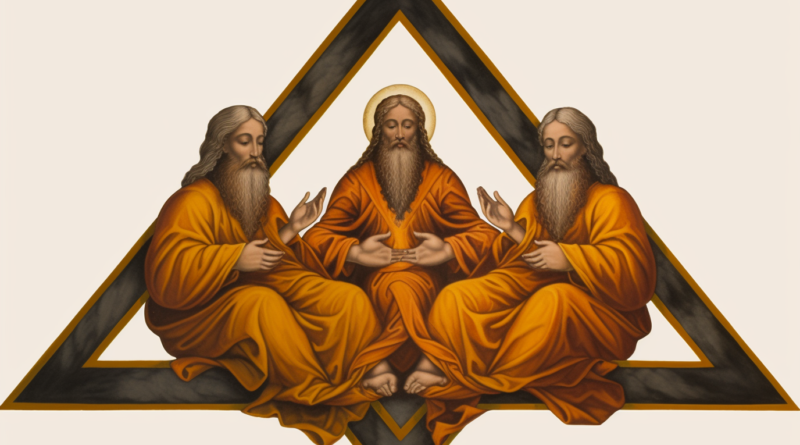Unmasking the Trinity (Part 5) – Hierarchy
Throughout the history of Christianity, there have been many interpretations of the nature of God, the Father, the Son (Jesus Christ), and the Holy Spirit. One such perspective, rooted in biblical scripture, is the doctrine of the Unity of God or Biblical Unitarianism. This doctrine contends for the absolute monotheism or singularity of God, contrary to the prevalent Trinitarian belief system which advocates for a triune God consisting of three co-equal and co-eternal persons.
In Biblical Unitarianism, God is seen as a divine hierarchy with the Father at the apex, followed by Jesus Christ, and then the angels. This understanding draws on numerous biblical passages that denote the Father’s supremacy and Jesus’ subordination. An examination of these texts reveals that the Holy Spirit, unlike the Father and the Son, does not hold a position within this divine hierarchy, which suggests it’s not a person but a representation of God’s divine power.
The conception of Jesus in the Bible further reinforces the doctrine of the Unity of God. Scriptural accounts explicitly state that Jesus’ existence began in time. He consistently refers to God as his Father, acknowledging Him as the source of his authority, and never equates himself with God. Jesus depicts the Holy Spirit as the Father’s divine power, not a co-equal person in a divine trinity. The apostles’ references to God, Jesus, and the Holy Spirit also consistently maintain these distinctions.
Moreover, the portrayal of the Holy Spirit as an extension of God’s divine power and presence finds resonance with functional language used throughout the scripture. It is presented as a divine power that the apostles were bestowed with, as opposed to being a separate person within the Godhead.
The Bible’s use of the term “Son of God” in reference to Jesus underscores a unique relationship but does not denote ontological unity. Rather, it maintains a clear distinction between the Father and the Son, thereby challenging the concept of Trinitarianism.
Historical analysis also lends credence to the Unitarian perspective. Many early church fathers, such as Tertullian, Hippolytus, and Origen, advocated a subordinationist view, emphasizing that the Son was subordinate to the Father. Trinitarianism, far from being an early Christian consensus, emerged through centuries of theological debate and controversy.
Notably, these theological considerations are closely linked with atonement theology. The New Testament repeatedly uses Old Testament typology to explain the nature of Jesus Christ’s sacrifice for humanity’s sins. Jesus, in this context, is depicted as the perfect “Lamb of God” – mortal, morally perfect, and sinless. His unique qualities, including his superior mental and intellectual strengths, close relationship with the Father, and the angelic assistance he received, allowed him to resist sin, making him the ideal sacrifice.
Biblical Unitarianism’s perspective of Jesus’ nature also negates the problematic notion of “original sin.” Instead, it upholds the view that while humans are prone to sin, they aren’t regarded as sinners until they sin, thus making Jesus’ sinlessness possible. This stance creates a theological paradox for Trinitarianism, which grapples with the conundrum of Jesus’ susceptibility to sin.
Lastly, Biblical Unitarianism also draws a significant distinction between the pre-crucifixion Jesus, subject to mortal limitations, and the post-resurrection Jesus. The risen Jesus is seen as the immortal, perfected, ultimate man, imbued with divine power and authority, second only to God’s.
In essence, Biblical Unitarianism’s high Christology is based on a high anthropology that places humanity at the pinnacle of God’s creation. The reconciliation it offers between God and humanity through the work of His Son, Jesus Christ, further underscores the Unity of God, as it affirms the distinct roles of God as the Father and Jesus as His Son in the divine scheme.
In conclusion, the Biblical Unitarian doctrine offers a compelling case for the Unity of God, drawing on Biblical scripture, historical analysis, and theological logic. It presents a view of God that is monotheistic, recognising the distinct roles of the Father, the Son, and the Holy Spirit, and a vision of Jesus Christ that is consistent with His portrayal in the Bible – a portrayal that highlights His uniqueness, moral perfection, and divine authority, while firmly situating Him within His humanity.

